Business
Bank directors ask FG to reconsider windfall tax, say it’s excessive burden

The Bank Directors Association of Nigeria (BDAN) has called on the federal government to reconsider the recently imposed 70 percent windfall tax on banks’ earnings from foreign exchange transactions.
On July 17, the national assembly said President Bola Tinubu requested the amendment of the 2023 Finance Act to impose a one-time windfall tax of 50 percent on banks’ FX gains last year.
Tinubu said the windfall tax will be used to finance infrastructure projects, education and healthcare, among others.
The national assembly passed the bill on Tuesday and increased the windfall tax to 70 percent, with retroactive application from January 1, 2023.
The windfall tax has raised several concerns in the banking sector, particularly regarding its timing and potential impact on ongoing recapitalisation efforts — but Femi Otedola and Tony Elumelu backed the decision.
In a statement on Monday, Mustafa Chike-Obi, chairman of BDAN, described the levy as, “excessively burdensome and ill-timed”.
Chike-Obi, who is also the chairperson of Fidelity Bank, said the high tax rate could stifle growth and innovation within the banking industry, ultimately affecting the quality of financial services available to customers and the broader economy.
He also said there was a need for greater consultation and dialogue between the government and stakeholders in the banking sector before enacting such significant changes.
“We, the Bank Directors Association of Nigeria (LTD/GTE) wish to formally address the recent imposition of a 70 per cent levy on the profits realised from foreign exchange transactions by banks for the financial years 2023 to 2025,” he said.
“We acknowledge and respect the intentions of the government in implementing this decision; however, we feel it is essential to express our concerns regarding the magnitude of the levy, its timing and the ambiguities surrounding its implementation.
“While the imposition of this windfall tax appears to be a response to the current economic climate, we suggest that a 70 per cent tax rate is excessively burdensome and ill-timed, particularly considering the ongoing bank recapitalisation efforts.
“Such a high levy has the potential to stifle growth and innovation within the banking sector; ultimately affecting the quality of services we provide to our customers and the broader economy.
“Moreover, we believe that it is vital for all stakeholders in the banking sector to have been consulted prior to the enactment of such significant changes in the Finance Act 2023. Open dialogue and negotiation are essential to ensure that policies are both equitable and effective.
“A primary concern lies in the ambiguities of the language in this amendment which leave critical questions unanswered. Such as, whether the windfall tax will be implemented as a Total Tax charge on banks, incorporating other taxes already levied such as Company Income tax, Tertiary Education Tax, National Information Development Levy (NITDL), etc.”
The BDAN also asked that clarifications on what constitutes “FX transactions” to be taxed and the treatment of banks that may incur losses rather than gains during this period should be provided.
“We urge the government to provide clear guidelines on this matter to avoid further uncertainty,” the association added.
‘BANKS ARE HEAVILY TAXED’
The association also stressed that Nigerian banks are already among the most heavily taxed globally, citing the existing Asset Management Corporation of Nigeria (AMCON) levy imposed on total bank assets.
BDAN urged the government to consider consolidating all taxes and levies on banks in the future to alleviate the sector’s tax burden.
“It would also be critical to reassure the banking community that future levies and taxes will not be arbitrarily imposed,” the association said.
“In view of these concerns, we respectfully urge the national assembly to revisit this amendment and engage in constructive discussions with stakeholders in the banking sector.
“By collaborating, we can develop a framework that effectively balances the need for revenue generation with the imperative of fostering a thriving banking environment that supports sustainable economic growth.”
The association said it remains committed to supporting and collaborating with regulators, government entities, and other stakeholders to find solutions that benefit all parties involved.
Business
APPLY: FIRS begins recruitment of senior managers, directors
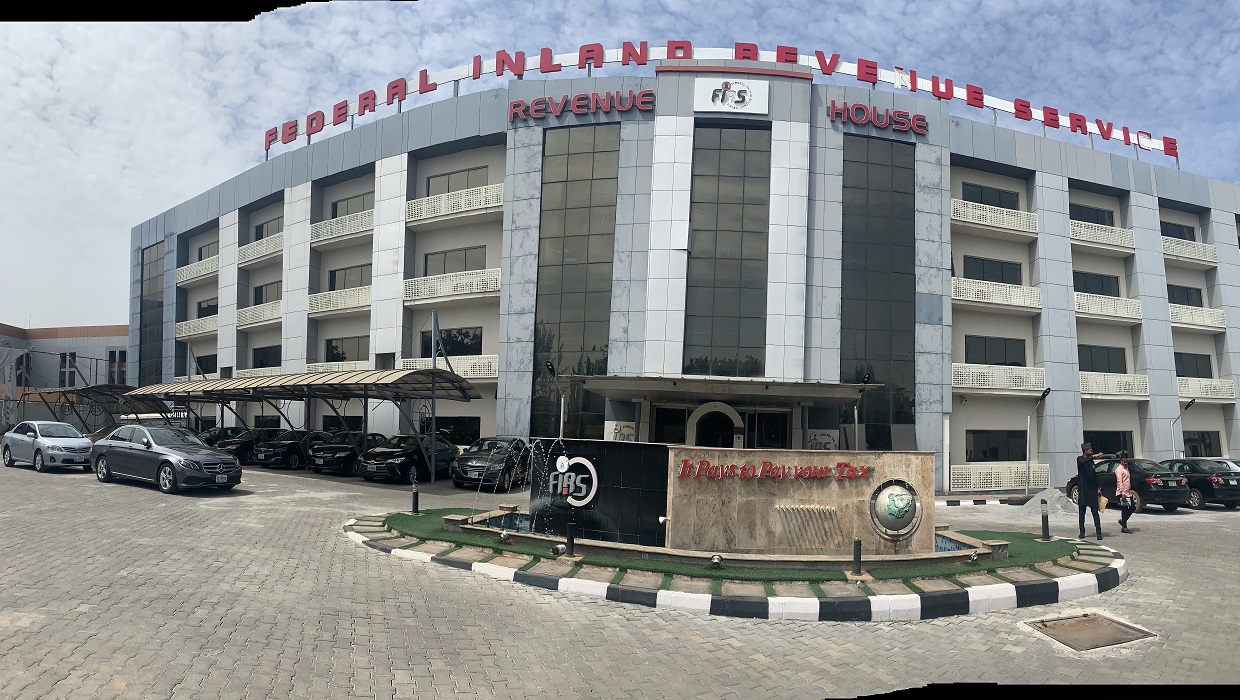
The Federal Inland Revenue Service (FIRS) has begun its recruitment exercise for experienced professionals to fill specialised positions in the organisation.
Announcing various vacant roles on Monday, the FIRS said the recruitment exercise is part of its consolidation strategies.
The advertised positions include assistant manager and deputy manager roles in tax (investigation), PRS (research), public relations, and ICT (cybersecurity and AI management).
Other available roles are assistant manager and deputy manager in PRS (risk management), assistant manager and deputy manager in legal, and senior manager and assistant director roles in tax (audit).
“Applicants must have qualifications and relevant professional certificates as specified in the positions they are applying for and must also fulfill the following requirements,” the agency said.
“Applicant must possess Bachelor’s degree/HND with at least second class lower/lower credit.
“Applicant must have completed NYSC not later than 31st December 2017.
“Applicant for the position of assistant manager and deputy manager must not be more than 40 years of age while senior manager and assistant director must not be more than 45 as at 31st December 2024.”
The revenue agency said candidates must possess strong leadership and management skills, team spirit and ability to effectively delegate, interpersonal and communication skills, and strong Analytical skills.
“Knowledge of the Nigerian tax laws and appreciation of their application and understanding of the regulatory framework within which the FIRS operates,” the FIRS said.
“Knowledge of business/industry environment within which taxpayers operate.
“Ability to work as a regulator with the courage to ensure full compliance with laws.
“Interested candidates should apply via official FIRS career portal: careers.firs.gov.ng and or FIRS verified social media handles.”
The FIRS said the application portal will open on December 23, 2024, noting that the deadline for submissions is January 11, 2025.
The service advised applicants to carefully review the eligibility criteria before applying to ensure they meet all requirements and understand the qualifications needed for successful selection.
Business
UBA GMD calls for public-private partnership to accelerate economic growth
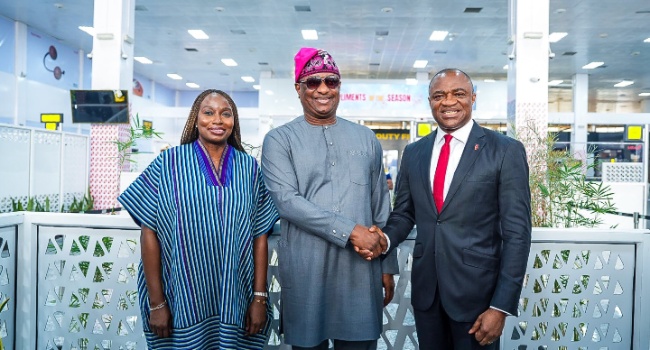
Oliver Alawuba, group managing director (GMD) and chief executive officer (CEO) of United Bank for Africa (UBA), has called for public-private partnership (PPP) to accelerate economic growth.
Alawuba spoke on December 20 during the launch of the newly renovated departure section of the Murtala Muhammed International Airport (MMIA), Lagos, refurbished by UBA.
According to a statement on Sunday by the bank, the project, which signifies a transformative moment in Nigeria’s aviation sector, shows UBA’s commitment to national development, highlighting the immense value of strategic PPPs.
The ceremony was attended by stakeholders, including Festus Keyamo, minister of aviation and aerospace development, and Olubunmi Kuku, managing director of the Federal Airports Authority of Nigeria (FAAN).
Alawuba commended the collaboration that led to the execution of the project, emphasising the need for public and private institutions to come together to build and revamp the nation’s assets.
“This renovation is a testament of UBA’s belief in the transformative power of investing in national assets. By modernising our airports, we not only enhance infrastructure but also position Nigeria as a global hub for tourism, trade, and investment,” he said.
“Public-private partnerships like this demonstrate what can be achieved when we unite for a shared vision of progress and investing in infrastructure catalyses economic growth, improves travel experiences, and creates opportunities across various sectors of the economy.
“The commissioning of the renovated departure section serves as a reminder of what strategic partnerships can achieve in driving national development and elevating Nigeria’s global standing.”
Business
Petrol to sell at N935/litre from today, says IPMAN
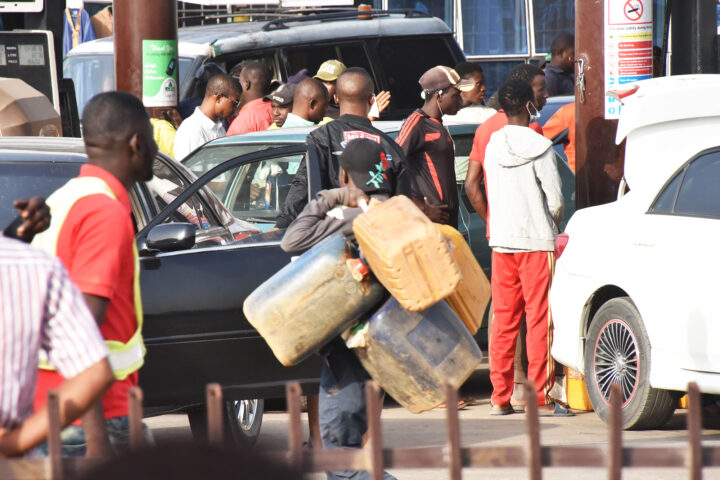
The Independent Petroleum Marketers Association of Nigeria has said that petrol is going to sell at N935 per litre beginning from Monday (today) based on the latest arrangement with the Dangote Petroleum Refinery.
IPMAN’s National President, Maigandi Garima, said the reduction in Dangote refinery’s ex-depot price for petrol and the uniform arrangement being put in place, would enable marketers to sell at N935 in their outlets nationwide, incurring a cost of N36 on logistics.
“Dangote refinery has brought another new arrangement of loading and pricing by which marketers would pay a fixed ex-depot price of N899.50k.
“The refinery is running a programme whereby it wants the fuel consumption across the country to be at the same rate. We are expecting the new arrangement to kick-start on Monday. Previously, the loading price was N970 per litre, but from Monday, petrol prices will drop to N935,” Garima stated.
The association also stated that over 30,000 of its members are set to commence petrol loading from the Dangote Petroleum Refinery and the Port Harcourt Refining Company following the reduction of the ex-depot price of the product to N899 per litre.
This came as it was observed that the pump price of petrol dropped on Sunday to between N950 and N980 per litre in a few filling stations in Lagos including MRS, BOVAS and NNPC. However, the cost was above N1,000 per litre in many other outlets in the state.
But IPMAN promised on Sunday that the price would drop further, as it said the cost of petrol would reduce to N935 per litre in more filling stations by Monday (today) in view of Dangote refinery’s new arrangement.
Similarly, retail outlet owners under the auspices of the Petroleum Products Retail Outlet Owners Association of Nigeria have begun registration with MRS filling station to lift Dangote petrol at N935 per litre.
The IPMAN National Publicity officer, Chinedu Ukadike, and the PETROAN President, Billy Gillis-Harry, disclosed these during separate exclusive interviews with The PUNCH on Sunday.
The development came after intense pricing competition in the nation’s downstream sector, which triggered a price war between NNPCL and Dangote due to a reduction in the ex-depot price to N899 per litre.
On Saturday, the NNPCL, in a surprising development, slashed petrol prices by 12 per cent, to the delight of Nigerians and marketers.
This decision, coming days after the Dangote Refinery reduced its price to N899, was confirmed by the Petroleum Products Retail Outlet Owners Association of Nigeria in a statement on Saturday.
Before now, petrol prices had consistently increased, causing customers to worry that the price hike might be sustained during the festive season.
The reduction in price to N935 in Lagos confirms projections by marketers and was exclusively reported by The PUNCH last Friday.
Providing further updates on the preparations for product lifting, the IPMAN publicity officer stated that marketers are getting ready to start loading petrol at a reduced price, as the national oil company has updated its pricing on the purchase portal.
Ukadike also said that the competition for market share between NNPCL and Dangote is beneficial for Nigerians because, in the end, it will reveal the true cost of PMS production and the expenses incurred in logistics.
According to him, the price war is central to a deregulated oil sector.
He said, “NNPCL has changed their price at their portal. It means that everyone who has access to that portal can be able to request and pay for products. Once you pay, you will called to the depot to pick up your products. Yes, they have changed the price on their portal.”
-

 News1 week ago
News1 week agoNaseni’s Executive Vice Chairman, Khalil Suleiman Halilu, Named 2024 Winner Of Daily Global Newspaper Conference Series Award For Science, Technology, Innovation, And Infrastructure
-

 Relationships1 week ago
Relationships1 week agoFour dating tips for single mum
-

 Relationships6 days ago
Relationships6 days ago‘I wish I met you before the wrong person’ – says Portable’s baby mama, Honey Berry, as she flaunts new lover
-
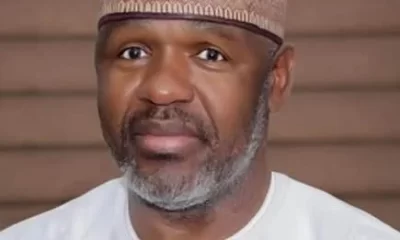
 Politics1 week ago
Politics1 week agoIbrahim Kashim resigns as Bauchi SSG
-

 Entertainment1 week ago
Entertainment1 week agoApostle Femi Lazarus, others top Spotify most streamed podcasts in Nigeria, Kenya, South Africa
-
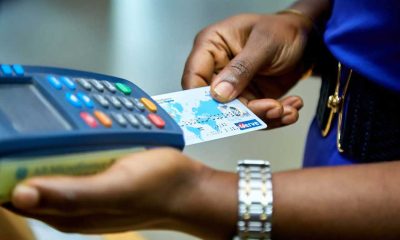
 Business5 days ago
Business5 days agoPoS operators increase withdrawal charges, blame electronic levy, cash scarcity
-

 News7 days ago
News7 days agoLagos state government shuts Lord’s Chosen Church, businesses across Lekki, VI, others over noise, environmental infractions
-

 Politics1 week ago
Politics1 week agoRep seeks increased participation of women in politics


















